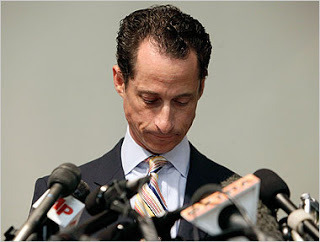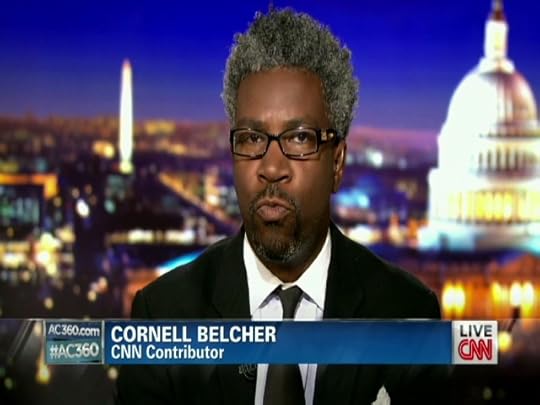David Gergen's Blog, page 7
June 23, 2011
Why didn't Obama listen to Petraeus?
By David Gergen, CNN Senior Political AnalystJune 23, 2011 9:25 a.m. EDT
STORY HIGHLIGHTSDavid Gergen: Obama carrying through on promise by reducing troop levelsHe says president sided with Biden against advice of Petraeus, othersGergen: Petraeus wanted more moderate reduction to sustain fight against TalibanHe says given Petraeus' sterling record, Obama should have followed his advice
(CNN) -- There was something deeply unsettling about President Obama's speech on Afghanistan and much of the commentary that surrounded it -- or at least there was to me, as someone who clings to some old-fashioned traditions about U.S. foreign policy.
It should be said up front that the speech itself was well crafted. More importantly, President Obama deserves credit on two fronts.
First, he has kept his promises as a candidate and then in the Oval Office that he would wind down the wars in Iraq and Afghanistan in ways that he considered responsible. When he came into office, the U.S. had approximately 190,000 troops deployed in the two war zones; the wind-downs that are under way will mean that by the end of this year, we will have less than 100,000 troops in Iraq and Afghanistan. Promise kept.
Second, the president deserves credit for having the guts to order up a surge in Afghanistan in 2009 -- against the wishes of many in his party -- and for overseeing many successes from the surge, including devastating blows against al Qaeda. Promise kept.
But the issue before him in his East Room speech was where to go from here in Afghanistan. Everyone in his administration agrees that it is time to begin winding down the Afghanistan surge, as he promised in his West Point speech in 2009. The central question was how to do that.
 Borger: Troop withdrawal plan 'vague'
Borger: Troop withdrawal plan 'vague' Afghans ready to take control?
Afghans ready to take control? Reacting to the Afghan troop drawdown
Reacting to the Afghan troop drawdownGoing forward, Gen. David Petraeus -- who runs the military operations in Afghanistan -- was widely reported to favor a slow, moderate reduction in U.S. forces, ensuring that the U.S. would continue to keep strong troop strength not only in 2011 but through the fighting season in Afghanistan in 2012. Defense Secretary Robert Gates and Secretary of State Hillary Clinton shared that view, according to reports. (In a wonderful bit of commentary, Joe Klein of Time has posited that the fighting season in Afghanistan starts in the spring when the opium crop has been harvested and ends in November or so when the harvest season opens for marijuana.)
Set against the recommendations of his top military commander and his defense and diplomatic secretaries were those coming from Vice President Joe Biden and others to speed up the withdrawal and shift quickly from a counterinsurgency strategy (which requires more troops) to a counterterrorism strategy (which requires fewer troops, depending more on pinpoint attacks by drones, special forces and the like).
Another view: End the war and bring troops home
As someone who has seen a lot of military decisions made in the White House, I am accustomed to presidents paying great heed to the views of their commanders on the ground.
In this case, Petraeus was not just the commander on the ground -- he is one of the very best American generals in modern history, a man who has turned around the wars in both Iraq and Afghanistan. One might think that given his extraordinary success and the great respect in which he is held on Capitol Hill and around the country, Obama would give Petraeus the benefit of the doubt and go with his preferred option.
What we are starting to see now in politics is a stampede toward the exits in Afghanistan.--David GergenRELATED TOPICSAfghanistan WarWar and ConflictBarack ObamaDavid PetraeusGovernment Spending
But that is exactly what the president decided not to do. Instead of a 3,000-5,000 troop withdrawal this year, as Petraeus is understood to have recommended, Obama went for 10,000. And instead of protecting two full seasons of strong American troop presence in Afghanistan, Obama set forth a plan that almost certainly will compromise next season's fighting.
As a top general at the Pentagon told me, there is great fear that once troops know they are definitely coming home next summer, they will be focused on getting out of there safely -- not on serious engagement with the Taliban.
Petraeus will loyally support the president in public, as he should. So will Gates and Clinton, even though both accepted the president's decision reluctantly, according to The New York Times.
But the impression grows that the president and his team were heavily influenced by the growing weariness with war in the public -- 56% now say we should get out of Afghanistan -- and by fears of the cost of war. All that is understandable -- the president clearly has one eye (or both?) on his re-election campaign next year.
Politics ever intrudes in policy-making. But in foreign policy, the tradition has usually been that a president's role is to figure out what is in the nation's security interest and do that. A strong president tries to rally public opinion behind him, not bend to the latest shift in the winds.
What we are starting to see now in politics is a stampede toward the exits in Afghanistan. The wars are bleeding us dry, it is said -- over $1 trillion over the past 10 years. Never mind that during those same years, a bloated government spent about $40 trillion in total. The public doesn't like Afghanistan anymore, it is said. Never mind that the public soured on Iraq, too, but President George W. Bush (despite his other faults) had the gumption to stick to his guns and order up a surge, and Iraq today is in much better shape than if we had retreated back when.
Given what Petraeus and others were arguing, I had hoped to hear more of that from Obama. He is certainly capable of making tough calls. But instead he delivered an address that had echoes of "Come Home, America," a famous convention speech by George McGovern during the Vietnam period that served as a powerful encomium to American ideals -- but also advocated a much more precipitous withdrawal than the wisdom of the American people could earnestly endorse.
No doubt, Obama's speech will appeal to many, many Americans. He is right that we do have to engage in more nation-building here at home. But we dare not head for the exits too quickly.
I wish he had listened to Gen. Petraeus.
The opinions expressed in this commentary are solely those of David Gergen.
June 21, 2011
GOP Field Grows Again with Jon Huntsman

Transcript from June 20, 2011 CNN's - The Arena
ROMANS: Brace yourselves. You're about to see something rare in American politics. Former ambassador to China, Jon Huntsman, until recently a key adviser to President Obama, a powerful member of his administration, he will officially break ranks to announce his own run for the White House.
Huntsman campaign kicks off tomorrow in Liberty State Park, New Jersey. And meanwhile Texas Governor Rick Perry is waiting in the wings. For more on the race, I'm joined now by CNN senior political analyst David Gergen, Democratic strategist and CNN political contributor James Carville, and Republican strategy Tony Blankley.
Gentlemen, welcome to the program.
David, you know, I know the other two want to weigh in on this right away. So I want to hear quick thoughts on President Obama's lead man in China, the number one proponent of his policies in the world's second largest economy. Now he's gone from adviser and our man in China to the president's opponent. It's really a remarkable turn.
DAVID GERGEN, CNN SENIOR POLITICAL ANALYST: It is. It's a fascinating moment in American politics. He's not at all well known here in this country. I think there was a poll out in Iowa asking about preferences and one person, one person -- I don't know if this would start this little base -- said they would like to see Jon Huntsman.
But if you look at him on paper, he is one of the most credential people we've had run in this race. If he can make it, if he can get some sparks going, there are a lot of people who are smart people who think he can be a very formidable candidate.
ROMANS: James Carville, you know, I mean does it help him or hurt him? Here he was an insider. I mean I've heard him dismissed as a Democrat almost because he worked for this administration. Or does it help him because he is the one with the credibility to stand up and say, I know the president's policies, I know the president's economic plan, and I decide I don't like it?
JAMES CARVILLE, DEMOCRATIC STRATEGIST: Well, I think he has a pretty good answer. He's answered with a pretty good answer. But he's also been for the individual mandate. He's been -- he thinks global warming is manmade.
I don't think he fits very well into the profile of what Republicans are looking for. He seems like an accomplished guy. He speaks Mandarin Chinese. And seems to have had as far as I can tell a good record as governor of Utah. But I think he -- I don't think the shoe is going to fit here.
ROMANS: Well, let me ask a question then. Here is the next thing. Now you've got two Mormons in the race and according to, you know, a new survey, 22 percent of Americans are reluctant, guys, to vote for a Mormon including 20 percent of Republicans and a whopping 27 percent of Democrats.
Can Huntsman or Mitt Romney hope to overcome this challenge overall and win the nomination? Tony?
CARVILLE: You're asking me?
ROMANS: Yes. That' that's for Tony. Sorry.
CARVILLE: OK, I'm sorry.
TONY BLANKLEY, EXECUTIVE VICE PRESIDENT, EDELMAN PR: Yes, look, I think -- I think he can. You have to look at that number not in the abstract but a certain percentage of the electorate, you know, won't vote for the Evangelical Christian or a Catholic or a Jew or anything else.
The fact that 27 percent is in Democratic Party might suggest that a higher percentage, for instance, of African-Americans might be hostile for the understandable reason that Mormonism until a generation ago was not friendly to African-Americans.
So is -- can an effective candidate who makes presidential timber, who runs a good campaign who is a Mormon win on the Republican Party? Yes, I think he could. Whether this man can make that profile, we'll see.
GERGEN: Yes, let me --
ROMANS: David?
GERGEN: Yes. Let me just add this, Christine. Look, two things. One is, it's important to -- look, I think a Mormon can win. And it's important to remember that -- the year before John Kennedy won as a Catholic 25 percent of the country said they would not support a Catholic. They were against a Catholic in the presidency. And yet he won the election.
And the second thing is, this is a country that after all just elected an African-American. No other advanced country has shown that kind of embrace of someone like that. So I think that they would embrace a Mormon.
ROMANS: You know, James Carville --
(CROSSTALK)
ROMANS: Go ahead.
CARVILLE: Go ahead. I just want to make one clear point here. There's absolutely no evidence that the Mormon Church exercises any influence over Mormon politicians. Harry Reid is a Mormon. Senator Udall is a Mormon. Senator Hatch is a Mormon.
Go look at their voting record. Mormons have served this country with distinction for a long time and would I vote for Harry Reid if I lived in Nevada? Doggone right, I would send him a check. Wouldn't matter to me.
GERGEN: That's right.
CARVILLE: It wouldn't matter to me if somebody else did. I mean I just think this is -- in my mind it should be a nonstarter in anybody's mind. There's actually record of Mormons' public serving with distinction. GERGEN: Well, I agree. The other thing is that Mormon business people we know have created a lot of jobs. And including his father who I have known for 40 years who is a terrific guy. They come from very good family. But they are very, very good at creating jobs.
ROMANS: Well, that's a good point because jobs is what's so important here.
And Tony, I wanted to ask you about this abortion pledge making the rounds. Because there are some who are suggesting that all of this talk again about some of what used to be called wedge issues is taking a little bit of the focus away from the fact that we have a jobs problem and there are still maybe isn't a clear and easy solution out of the jobs problem.
And so are things like this abortion pledge that's going around, that Mitt Romney by the way refused to sign, is that taking the eye off the ball a little bit? Are these legitimate concerns for base voters?
BLANKLEY: Well, look, I don't think the Republican is going to get the nomination if they're not right to life. But on the other hand, I agree with Romney. I'm not particularly a supporter of him but I agree that he took the right position saying, I'm not going to sign pledges that waive my right to make appointment as president of the United States.
ROMANS: Right.
BLANKLEY: You don't know whether an attorney general or senior Justice official you want to hire for some reason other than the abortion issue and this pledge goes well beyond what the traditional right to life position expects.
It talks about defunding possibly -- it's ambiguous. Defunding every hospital in the country.
I think Romney was right not to focus on this. I think he shows some integrity and guts. So I think he took the right position. I do not think he'll be hurt by it.
ROMANS: There's so much to get to. I want to real quickly bring in Texas Governor Rick Perry, another Republican. You know flirting maybe with a run. Or maybe his supporters are flirting with -- trying to get him to make a run. He gave a speech to the Republican leadership conference this weekend. I want to listen to it quickly.
All right.
GOV. RICK PERRY (R), TEXAS: Let's stand up. Let's speak with pride about our morals and our values and redouble our effort to elect more conservative Republicans. Let's stop this American downward spiral.
ROMANS: David Gergen, do you think he's going to run for president?
GERGEN: I think there's a very good chance he will because there's an increasing cry among Republicans to get another conservative in the race. Someone who is exciting. You know Michele Bachmann has, you know, excited, ignited audiences -- Republicans audience in Iowa and New Hampshire.
Rick Perry would have that same effect. I think he'd be quickly in the top tier. I believe -- I still believe that Mitt Romney would be the frontrunner whether Perry gets in or not.
ROMANS: Carville?
CARVILLE: Yes, I think -- I hope he runs.
(CROSSTALK)
ROMANS: Why do you hope he runs? Why? Tell me why.
CARVILLE: Because anybody that talked about succession needs to run for president. You know? That's what we wanted to think this presidency before. And -- plus, I -- you know, I don't -- he talks a lot and he's not very bright. And that's a combination I like in Republicans.
BLANKLEY: I think if James is doing a briar patch for him, I think Perry must be a pretty good candidate.
(LAUGHTER)
CARVILLE: But I definitely hope -- I want Sarah Palin to run. Tony, understand, I want a big field here. I'm all for it. The more the merrier. And I agree that -- you know, Romney just seems like such a front runner. He's got so much more money than anyone else.
New Hampshire primary lines up nicely for him. And every time I think that he's got to get the nomination, I get a doubt that a lot of Republicans just have a lot of second -- you know, just doubt things. It's going to be interesting to see. He's got a lot of pressure on him. He should win.
ROMANS: And if you, guy -- it is only just beginning. I mean the twist and turns, I can't wait.
All right, James Carville, Tony Blankley, David Gergen, thanks. Nice to have you all.
GERGEN: Thanks, Christine.
BLANKLEY: Thank you.
June 17, 2011
AARP move on Social Security could help avoid a train wreck
June 11, 2011 12:07 p.m. EDT
Cambridge, Massachusetts (CNN) -- While America retains many underlying strengths, economists increasingly worry that unless we change course, the United States could be heading toward an economic train wreck. For months, the focus has been on the country slipping into a debt crisis. In the past few weeks, concerns have risen sharply about economic growth as well. Two top economists, Larry Summers and Carmen Reinhart, have asked aloud whether we could be stumbling into a "lost decade," a catastrophe that swept Japan in the 1990s.
Is there finally some good news about our direction? Perhaps.
The lead piece in the Wall Street Journal on Friday reported that the American Association for Retired People, the powerful lobbying group, has privately decided to end its opposition to benefit cuts in Social Security. The group issued a statement Friday morning downplaying the story, but the piece was so well reported and it quotes so liberally from John Rother, the veteran AARP policy director, that there does seem to be serious movement inside the organization.
AARP expects Social Security benefit cuts
If so, the willingness of AARP to be at the table for negotiations would greatly strengthen the courage of the Obama administration to engage on the issue at long last and could help the country solve an important piece of the budget riddle that we face. Everyone knows that our entitlement programs, especially Medicare, Medicaid and Social Security, are financially unsustainable on their current trajectories. If we are to avoid a debt crisis, reforms are essential. But the politics of entitlement reform are treacherous: Democrats don't want to cut benefits and Republicans don't want to raise taxes. Both will ultimately be needed.
Experience says that Social Security should be much easier to "save" than Medicare. We were last able to overhaul and strengthen Social Security nearly 30 years ago with the Greenspan commission. I was in the White House at the time and saw that it can be done, especially with two keys in place: bipartisan political leadership (in that case, President Reagan and Democratic House Speaker Tip O'Neill) and the willingness of AARP to go along.
If the AARP will officially embrace a willingness to support negotiations, that would be a substantial help, as President Obama has signaled an interest in reform as have Republicans. Of course, they are still far apart on the size of tax increases and benefit cuts, as well as raising the retirement age. The AARP is also insistent that Social Security not be wrapped into the large-scale deficit negotiations under way. But the key is to get talks moving. If we can get Social Security done, we could improve prospects for Medicare overhaul. And we need to act soon to do both, as well as look for more tax revenues. We are hurtling toward a train wreck faster than we think.
June 16, 2011
It Was the Lie That Did It
Originally published in The New York Times
Why Not David Vitter Too?
Anthony Weiner's resignation will lead to more scrutiny of the private behavior, past and future, of public figures.
It Was the Lie That Did It

Updated June 16, 2011, 06:10 PM
David Gergen, a former adviser to four presidents, is a senior political analyst for CNN. He is a professor of public service and the director of the Center for Public Leadership at the Harvard Kennedy School. Follow him on Twitter at @David_Gergen.
"Life is unfair," President Kennedy liked to remind people. So it was with Kennedy, who was in chronic pain much of his life. And so it may seem to Anthony Weiner, forced out over virtual sex while Senator David Vitter stayed, even though he had the real thing with hookers.
When a politician looks them in the eye and is blatantly false, a bond is broken; sometimes irretrievably.
Unfair to Mr. Weiner? Well, yes and no.
Seven years ago Mr. Vitter was accused of a relationship with a prostitute. He dismissed the charge as crass Louisiana politics. Not well known and not from a big media state like Anthony Weiner, he got away with a lie.
But more recently when his name was found in a madam's book and was a press sensation, Senator Vitter the very next day fessed up, was humble and sought public atonement. His many friends in DC stood by him as did voters back home.
Representative Weiner by contrast engaged in brazen lying for most of a week, playing the victim to press and public. We don't yet know how much he also lied to Democratic leaders but he certainly misled them. When he was finally forced to come clean (remember, he didn't do so voluntarily), the dam burst in the Democratic caucus. He was finished the moment his lying was clear.
It may seem quaint these days but in much of politics, trust is still the coin of the realm. Colleagues in Congress, reporters, financial supporters -- and yes, voters -- want to know whether a political leader is straight up with them. When he looks them in the eye and is blatantly false, a bond is broken. Sometimes irretrievably.
Subliminally, I suspect that Senator Vitter is also seen as more manly. He had sex the old-fashioned way.
How will the Libya conflict play out?

By Barry Neild, CNN
June 15, 2011
NATO Secretary General Anders Fogh Rasmussen has said the alliance will maintain pressure "for as long as it takes."
(CNN) -- With the conflict between Libyan rebels and Moammar Gadhafi's forces dragging on with little progress, questions have been raised over NATO's ability to bring resolution to the conflict.
Outgoing U.S. Defense Secretary Robert Gates has criticized the air campaign against Gadhafi saying shrinking military budgets have put the mission and future NATO operations at risk. His comments came as other NATO partners questioned their ability to sustain involvement.
NATO Secretary General Anders Fogh Rasmussen, who met British Prime Minister David Cameron on Tuesday, has said the alliance will extend its mission 90 days beyond the end of June and maintain pressure "for as long as it takes."
But with cracks appearing in the coalition and the comparative lack of progress since early gains when the campaign started in March, is it time to explore other options? If, so, what options are available, and what is the likelihood they will succeed?
CNN has been speaking with analysts to weigh some of these alternatives to ending the conflict in Libya:
Pres. to make case for Libya mission Rebels: We got hands on battle plan 'Complete chaos' at Libyan hospital U.S. mission in Libya: Unconstitutional?
1. Continue with the current NATO campaign
It is possible NATO will carry on with few changes to the current mission, but complaints of resources under strain indicate a resolution is needed sooner or later. David Hartwell, a Middle East and North African security expert with IHS Jane's, says this is only likely to result in success if an increasingly unlikely mass defection of Gadhafi stalwarts, a major uprising in Tripoli and a dramatic opposition offensive combine to topple the Libyan leader.
"There are question marks whether this will work because even though there have been a series of defections, that has conversely led to a tightening of the circles around Gadhafi to a point where you've got the hardcore loyalists," he said.
2. Stepping up NATO efforts, including putting coalition boots on the ground or directly targeting Gadhafi
Most analysts agree, NATO's original mission of preventing civilian casualties has expanded to securing Gadhafi's exit, with some claiming the coalition is already directly targeting the Libyan leader. Few, however, believe the mission will be stretched to allow deployment of NATO troops -- other than military advisers -- within Libya, particularly given the lack of interest from alliance partners for stepping up their commitment.
"While the tempo of the onslaught will be ratcheted up, there is no way NATO allies will allow this to spiral into a no-drive zone with troops on the ground," says Barak Seener, a Middle East expert with the Royal United Services Institute for Defence and Security Studies.
Ben Barry, military analyst for the International Institute for Strategic Studies, says further targeting of Gadhafi could result in a dramatic increase in civilian casualties: "Gadhafi will be straining every sinew not to be targeted. But it seems to me there is a positive point about the campaign in that NATO seems to be making extraordinary efforts to avoid civilian casualties and collateral damage and this seems to have been more successful than in any other air campaign in history."
3. A full withdrawal of NATO
For NATO to pull out of its Libya mission after securing a U.N. Security Council resolution to mandate air strikes would be a disaster for the rebels, says Barry. In addition, Seener argues that such a move would do too much harm to NATO's credibility for it to be an option; particularly as it "risks losing face to Robert Gates' criticism."
4. Negotiating an exit for Gadhafi; perhaps securing exile in a friendly country and immunity from prosecution
While he could theoretically seek exile in a friendly country that does not recognize the jurisdiction of the International Criminal Court, the promise of immunity is key, says International Crisis Group's Hugh Roberts, who writes in a recent report: "To insist that [Gadhafi] both leave the country and face trial in the International Criminal Court is virtually to ensure that he will stay in Libya to the bitter end and go down fighting."
That said, most analysts agree that exile will only be a last resort possibility for Gadhafi. Some believe it can never be an option. According to Seener: "Gadhafi is unwilling to leave the country and -- being a deluded, megalomaniac despot -- he is in denial of his losses and perceives it his right to maintain a position of total power. This is his oxygen and the only alternative is for Gadhafi to die in Libya."
5. Finding a diplomatic solution that allows Gadhafi to remain in Libya in some role
At issue here is whether Gadhafi can be trusted. Hartwell says a solution that sees him retain a role, even in a transitional capacity is unlikely to win support among the rebels and some of NATO's more outspoken members. To this end, efforts by the African Union and South Africa to bring both sides to the negotiating table have had little success.
With Gadhafi having burned bridges with Western allies, there is now no guarantee he will not ignore the terms of any peace deal and revert to his previous role as an international troublemaker, Barry says.
"If Gadhafi remains in power, is there not a high probability he will return to his previous behavior; a serial sponsor of terrorism, including a supplier of the IRA; a serial interferer in the affairs of his neighbors; and of course someone who had weapons of mass destruction?"
6. Bypassing the United Nations
While NATO is currently limited to air strikes by the Security Council resolution that mandated intervention, Barry argues there could be another legal route to deploying international ground troops. This rests on the recognition by other nations of the rebel Transitional National Council as the legitimate government of Libya.
"There's nothing to stop that legal and legitimate government, as they see it, approaching those nations for direct help under the various elements of the U.N. charter that cover the right of self-defense. And there's nothing to stop those countries, whether or not they're members of NATO, from giving lethal or non-lethal aid or deploying their troops to support their new ally. And my interpretation of this is that it wouldn't require a new Security Council resolution."
June 14, 2011
The Day The Unions Died?
Wisconsin's top court Tuesday reinstated a contentious law that curbs the collective bargaining rights of most state employees. Opponents of the law said the fight will now be taken to those who supported it.
The state's Supreme Court, by a 4-3 vote, set aside a ruling by a lower court judge who had placed a permanent injunction against the law. The court ruled the state Legislature did not violate the state's constitution when it passed the legislation.
The ruling was a major victory for Republican Gov. Scott Walker, who pushed for the bill over a chorus of angry teachers, union members and others who said it was an attack on worker rights.
"The Supreme Court's ruling provides our state the opportunity to move forward together and focus on getting Wisconsin working again," Walker said in a statement.
The Wisconsin AFL-CIO criticized the ruling.
"The inability of the Wisconsin Supreme Court to separate partisan politics from the well-being of Wisconsinites is the latest indication that citizens do not have a voice in this state," it said in a statement. "And the only way for Wisconsinites to repair that voice is to take back the Senate this summer, stop Walker's unbridled assault on working people and take back the statehouse in 2012.
Published originally on CNN June 14, 2011.
Candidates may win GOP, but lose America

Manchester, New Hampshire (CNN) -- The first big Republican debate ended with two clear winners in the race for the nomination: Mitt Romney and Michele Bachman. And there was one other candidate who helped himself: Newt Gingrich.
But whether this debate helped Republicans win the White House is a tougher question.
.Just as important, no one laid a glove on Romney the whole two hours. The biggest surprise of the night was Tim Pawlenty, who ducked an obvious opportunity to hit Romney over health care reform.
Just the day before, Pawlenty had attacked "Obamneycare" on a Sunday talk show, but when moderator John King repeatedly asked Pawlenty in effect to repeat the charge, Pawlenty refused and could hardly look Romney in the eye. And this from a candidate, as King said later on "AC 360", from a man whose book has a title that starts with the word "Courage." As a result, Romney went up in the eyes of the commentariat and Pawlenty fell.
 Pawlenty's missed opportunity?
Pawlenty's missed opportunity? GOP candidates clash ahead of debateThe candidates tonight were all running to a hard, uncompromising right. --David GergenRELATED TOPICSU.S. Republican PartyElections and VotingBarack ObamaNew Hampshire
GOP candidates clash ahead of debateThe candidates tonight were all running to a hard, uncompromising right. --David GergenRELATED TOPICSU.S. Republican PartyElections and VotingBarack ObamaNew HampshireAs for Bachmann, she turned out to be the best communicator on stage. Time and again, she sprinkled key facts into pithy, quotable comments so that she held people's attention. She was also able to wind in aspects of her family life that would strike the fancy of many voters -- twice, she told viewers that she and her husband had raised 23 foster children, and this from a couple with five kids of her own.
Who needs Sarah Palin as a candidate when you have Michele Bachmann?
Gingrich entered the night with many pundits wondering whether his candidacy was on the ropes. He left the hall with head up, knowing that he had shown the best substantive grasp of any of the candidates on stage. Whether or not you agree with him, he makes you think.
The harder question is how all this played with the country -- that is, if voters were willing to give up the Bruins for politics. As Ron Paul recognized afterward on "AC 360," this field of candidates is much closer to his anti-governmental, libertarian stance and even to his reluctance to exercise U.S. military force than the Republican candidates of 2008. The candidates tonight were all running to a hard, uncompromising right.
My bet is that with the exception of a few remarks (e.g., Gingrich on Medicare), these candidates played very well with the base of the Republican party, and that base continues to grow more conservative.
But for moderate independents who listened to the whole two hours, I imagine that there was growing discomfort. Why, they might ask, was there so little compassion for the children of undocumented aliens? If a child is of school age, do these candidates honestly believe that she should be turned away from public school? Or when sick, denied emergency hospital care? Surely, they do not, but one could easily have come away with that and similar conclusions.
With the center of the Democratic Party moving left, we seem to be heading into even more partisan and polarized politics. Millions of Americans are yearning for something better.
The opinions expressed in this commentary are solely those of David Gergen.
Watch Anderson Cooper 360° weeknights 10pm ET. For the latest from AC360° click here.
David Gergen's Blog
- David Gergen's profile
- 24 followers



